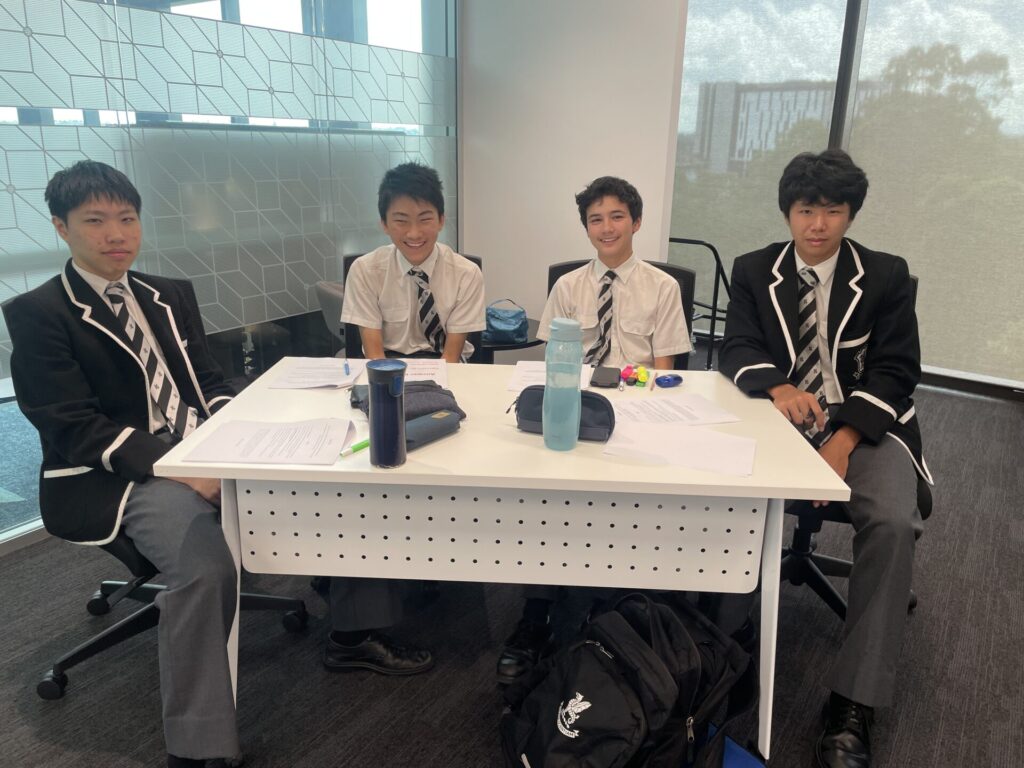A Gratitude Attitude: re-wiring your brain for the better
All of us know the spontaneous emotional boost that comes with being on the receiving end of a random act of kindness, finding an encouraging message from someone, being given a compliment by a colleague, family member or stranger, receiving unexpected thanks. We feel buoyant and more inclined to ‘pay it forward’. Scientists identify this as the brain releasing oxytocin, occasionally referred to as the ‘love hormone’, which aids in lowering blood pressure, improving our overall heart-health, increasing self-esteem and optimism.
Interestingly, medical research takes us a step further when we look at the impact on the brain of the simple act of saying ‘thank you’. This effect is ‘upgraded’. Benefits for all of us can include a lasting lift in oxytocin and cortisol levels and a boost to two powerful neurotransmitters, dopamine and serotonin1, naturally occurring chemicals in the brain which help your body move fluidly, your mind stay calm and focused on a task, and help you to resist depression and other mood disorders2. Furthermore, enhanced levels of dopamine may have a role in addiction and impulse control, attention, motivation and goal-directed behaviour – it acts to reinforce behaviours that make you feel good – whilst decreased serotonin is linked to drug abuse. And, a powerful fact is that the benefits cost nothing and are available to every individual with just a subtle shift in attitude and mindset. It is argued that a gratitude attitude can re-wire our brain for the better and enhance life satisfaction.
As understanding of these benefits deepens and spreads, the gratitude movement is growing as a global phenomenon. Governments, businesses and companies, educationalists, health professionals, sporting teams, service organisations to name a few, have progressively drawn upon research to transform productivity in the workplace, attract customers, and generally promote the wellbeing and achievements of individuals. Two thirds of governments around the world also support teaching character education of which practising gratitude is a key component3. Significantly, as recently reported in The Australian4, what we as parents need to avoid is not expecting our children to be grateful anymore, that we are “accustomed to getting no acknowledgment for, say, devoting [our] weekend to driving them from activity to activity”.
In the article, Breheny Wallace refers to the work of Richard Weissbourd, faculty director of the Making Caring Common initiative at Harvard’s Graduate School of Education, who has highlighted in his research that “when parents organise their lives around their kids” a sense of entitlement – that belief in having a right to something, rather than it being a privilege to be earned – can leave our children feeling grateful for nothing. We now more clearly understand that the psychological and social costs of this can be considerable, and that our children need new skills to flourish in the 21st century.
The act of being thankful can be life-changing. Collective research has identified that experiencing high levels of gratitude in adolescence can contribute to a child thriving, increased school engagement, a corresponding improvement in academic achievement, more fulfilment and success in co-curricular programs, a more willing engagement in service endeavours, a growth in compassion and empathy, and less anxiety and depression. In communities developing gratitude and positive education initiatives, the benefits have included an increase in pro-social behaviours and a reduction in anti-social and aggressive conduct and self-harming.
Whilst daily life is never free from challenges, what helps builds resilience is the lens or filter through which we view these. Using the technique of mental contrasting – being optimistic about the benefits of a new habit while also being realistic about how difficult building the habit may be – leads us to exert more effort5. The documented benefits of regularly practising gratitude include improved sleep, a willingness to engage in more frequent exercise, stronger cardiovascular and immune systems and longevity. But to reap the benefits, it involves changing behaviour and possibly introducing new routines.
There is considerable information available on beneficial strategies and practices to adopt. Three common techniques include keeping a ‘gratitude journal’ and writing down the things we’re grateful for either daily or weekly; taking five to ten minutes at the end of each day to jot down ‘three good things’ that went well; saying ‘thank you’, which may range from a small gesture of appreciation through to a ‘gratitude letter’ to someone to whom you feel you’ve never properly expressed your gratitude, which may also deepen your relationship with them. A powerful example of this is the letter Year 12 parents write to their sons, opened in a private moment by each boy at the Year 12 Retreat.
Listing the benefits of a gratitude attitude, realistically we can expect improved physical health; improved psychological health and a reduction in a range of toxic emotions including envy and resentment, negativity bias, frustration and regret; deeper relationships, increased empathy and a decreased desire to seek revenge; better sleep patterns; increased self-esteem, an essential component to optimal performance in all areas of our lives; and greater resilience – even during the worst of times mentally strong people choose to exchange self-pity for gratitude6, a critical cognitive process.
Neuroplasticity is the ability of the brain to reorganise synaptic connections – our state of mind – in response to learning. In other words, the repeated act of practising gratitude can ‘rewire’ our thinking, and not only in the short term. The art of thankfulness, a gratitude attitude, is not a cure-all. But the rewards are instantaneous, and can be life-changing.
Being grateful shifts your perception to such an extent that it changes the world you see, and empowers you to discover what’s possible.
Linda Munns-Conry
Acting Deputy Head of Stanmore (Students)
[1] Gottfried, Sarah MD, Thanksgiving: What Gratitude Does to Your Brain
[2] LIVESTRONG.COM, Dopamine vs. Seratonin
[3] World Government Summit, The State of Positive Education
[4] Jennifer Breheny Wallace, Gratitude, the life-changing attribute you can teach your kids
[5] CARPENTER, Derryck MAPP, The Science Behind Gratitude (and how it can change your life)
[6] Morin, Amy, 7 Scientifically Proven Benefits of Gratitude



